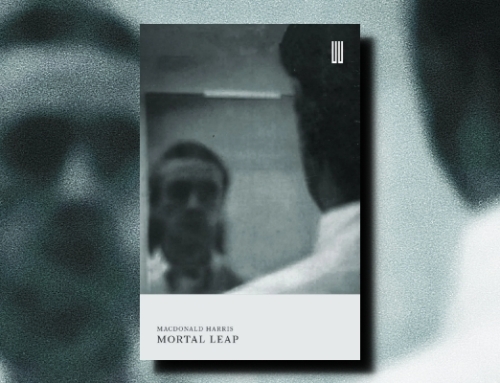Foe
by J.M. Coetzee (1986)
Penguin (1988)
157 pp

Before this, I’d read three other books by J.M. Coetzee: Waiting for the Barbarians, Life and Times of Michael K, and Disgrace. I enjoyed all three — very much. His style is so wonderfully simple and yet precise and still poetic. Despite never having read Robinson Crusoe, for some time I have been looking forward to reading Coetzee’s Foe, his next book after winning the Booker for Life and Times of Michael K. When Foe was released Coetzee was criticized because it did not appear to be a politically relevant book like his others. While I agree that it is not overtly political, its portrayal of language and how language can build power is acute and politically important in a less obvious way. My problem with it was that I found it a bit boring and not as well tailored as his other books.
The book is a sly reworking of Daniel Defoe’s Robinson Crusoe. Like Crusoe (I said I’d never read it, not that I’d never read about it :) ), Foe is a story within a larger frame. The book begins with quotation marks as Susan Barton begins her dramatic monologue. We come to know that she is telling a writer, Mr. Foe, about her arrival on Cruso’s island, a wind-blown and rather barren island somewhere out from Brazil. Through snippets in this monologue, we find out that she had been in Bahia, Brazil, searching for her lost daughter, to no avail. On her return to England, the ship on which Barton was sailing suffered a mutiny. Barton, who had been cozy with the now-dead captain, was placed in a small boat with the captain’s body and castaway. Eventually, dying of thirst with hands hurting from incessant rowing against the current, she throws herself into the ocean, eventually to be washed up on an island. On the shore she is found by Friday, Cruso’s black servant and fellow castaway. For the next year Barton learns to cope with the wind and the waste on the island, constantly hoping for salvation. This is Part I.
In Part I, there are some beautiful lines that introduce the major theme of the novel.
But who, accustomed to the fullness of human speech, can be content with caws and chirps and screeches, and the barking of seals, and the moan of the wind?
Speech — the ability to make sound, to be heard, to be listened to, to communicate, to create a history — is the novel’s main theme, particularly as applied to those without power. We soon find out that Friday’s tongue has been removed by someone. Slave merchants? Cruso himself? We don’t really know. While on the island, Barton wants to teach Friday the ability to communicate, but Cruso says Friday knows what’s needed. Also, Barton wants Cruso to find a way to write his story so that it can be shared with others, but he has no interest. We never find out how Cruso came to the island. Despite the lack of communication, in some way these three diverse individuals manage to form a slight sense of being while trapped together on the island, and their connections don’t seem to rely on words. Barton wonders:
What had held Friday back all these years from beating in his master’s head with a stone while he slept, so bringing slavehood to an end and inaugurating a reign of idleness? And what held Cruso back from tying Friday to a post every night, like a dog, to sleep the more secure, or from blinding him, as they blind asses in Brazil? It seemed to me that all things were possible on the island, all tyrannies and cruelties, though in small; and if, in despite of what was possible, we lived at peace one with another, surely this was proof that certain laws unknown to us held sway, or else that we had been following the promptings of our hearts all this time, and our hearts had not betrayed us.
When salvation comes Barton is certain it will lead to a better life. However, Cruso does not survive the journey home. Barton and Friday find themselves lost and destitute in England. With no money but with hope, Barton goes to Mr. Foe, hoping he’ll put her island adventure — what we’ve just read — into print. She’s certain she lacks the skill to do it (“Return to me the substance I have lost, Mr Foe: that is my entreaty. For though my story gives the truth, it does not give the substance of the truth (I see that clearly, we need not pretend otherwise).”). Thus we find out why Part I of the book is in quotations: it is Barton’s recounting of the events on the island.
When Part II begins, Foe has abandoned his home to creditors, and Barton has no idea how to find him. Her only hope for herself and Friday is unresponsive. This Part contains Barton’s letters imploring Foe to continue writing her story (“For surely, with every day that passes, our memories grow less certain, as even a statute in marble is worn away by rain, till at last we can no longer tell what shape the sculptor’s hand gave it.”). She and Friday are in worse circumstances than they were on the island. When the creditors finally leave Foe’s home, Barton and Friday move in.
Part II is where the book started to lose my intense interest. At times it was still fascinating: there is an encounter with a girl claiming to be Barton’s daughter (it’s vague but vital to the story — the girl is a symbol); there is evidence Foe sent the girl; there is further evidence the girl is being genuine. There are multiple observations of Friday and what appears to be his complete oblivion. Still, I found myself just wanting the book to move forward and end. Coetzee’s own narrative becomes surreal as Barton’s reality becomes uncertain and characters enter and leave the story like ghosts through walls. I’m sure I didn’t give it the time it deserved, but I was getting impatient before the narrative started falling apart, and it’s hard to get back on track when it’s going to take even more patience.
All of this builds up to a more pleasing, though still abstract, Part III when Foe finally speaks for himself. Turns out he has been giving Barton’s story a lot of thought, but he doesn’t like her way of telling it. He tells her the story should be about her search for her daughter, something merely tangential, almost incidental, in Barton’s account and in her letters.
‘. . . It is thus that we make up a book: loss, then quest, then recovery; beginning, then middle, then end. As to novelty, this is lent by the island episode — which is properly the second part of the middle — and by the reversal in which the daughter takes up the quest abandoned by her mother.’
All the joy I had felt in finding my way to Foe fled me. I sat heavy-limbed.
The book has much more to it than I was able to put down here, and for that reason it is worth reading. I don’t think it is Coetzee’s best work by a long shot, but in hindsight (after getting through the undergrowth) I very much liked the layers built upon this phrase: “. . . what it is to speak into a void, day after day, without answer.”









Great review. You may have found it “a bit boring”, but your review makes it sound great. Of Coetzee’s work, I have only read Disgrace, which I thought outstanding.
I was planning to pick up Summertime as it is timely, but I really would prefer to go with a known masterpiece. (So as not to be turned off a great author by reading a subpar piece too soon.) Of Waiting for the Barbarians and Life and Times of Michael K, would you recommend one over the other?
I’m a Coetzee skeptic. Some (the three you read before this one, as it happens) I certainly recognize as very good — others seem to show not nearly as much talent. Frankly, from your review, this one falls into the category. One of the aspects of Coetzee that I don’t like that much is turning his literary theory thoughts into works of fiction which seems to be the case here. Diary of a Bad Year would serve as a more recent example. I do appreciate your review — it will keep me away from a book that I am pretty certain I would not like.
And unlike much of the rest of the reading world, I am not particularly looking forward to Summertime. I’m afraid the whole notion of “fictionalized autobiography”, sold in multi-volume parts, rubs me the wrong way.
I’ve read quite a few of Coetzee’s books but the one I thoroughly enjoyed was Age of Iron. I found it a poignant read. Also style-wise it’s in the form of a series of unsent letters. I know it’s been done before but I found it a nice touch.
Kerry, I think I’m in the minority, but I liked Life and Times of Michael K more than I liked Waiting for the Barbarians. Both are better than Foe. I actually hoped that Life and Times . . . would get nominated for best of the Booker last year, I liked it that much. However, I think putting Disgrace in was the better choice between the two.
Kevin, after Foe I think I’ll have to be pretty selective about Coetzee. I’m not looking forward to Summertime for the same reason you named, but I will read it when it comes out here. Well, I guess I can’t promise that, but it is my intention now.
DK, when I bought Foe I also bought Master of Petersburg, but I almost bought Age of Iron. Not that I regret my purchase, but I would have liked to enjoy this book more. Has anyone read Master of Petersburg? It’ll be a a while before I read it, but should I go with Age of Iron instead?
I should have noted that I will read Summertime as well. I’m hoping that acknowledge my prejudice will at least enable me to approach it in a neutral frame of mind.
Should have read that comment before posting — acknowledging not acknowledge.
I haven’t read Master of Petersburg but I think Age of Iron is better than foe and Disgrace and I preferred it to life and times… but that’s solely my opinion there loads will disagree.
Interesting review. I have not read any of his novels, but need to remedy that soon as I carve out a space in the TBR list…I have most of them, and was planning to start with Foe, since Bloom mentioned this and I believe Disgrace (but then again Bloom likes Paul Auster, who I find pretentious)…I love non-plot driven fiction, so maybe Foe won’t be an issure for me…
I think I will try Life and Times of Michael K then, and possibly before Summertime comes out here in the US. Thanks for the guidance.
Thanks for the comments everyone. I’m interested to see your verdict on Coetzee, Randy. I’m also a fan of non-plot driven fiction, but this one just didn’t quite work for me. But Coetzee is very worth reading.
I really enjoyed your comments esp. the introductory part on the power of language & its importance, it helped alot in my research.